- About
- Mission Statement
Education. Evidence. Regrowth.
- Education.
Prioritize knowledge. Make better choices.
- Evidence.
Sort good studies from the bad.
- Regrowth.
Get bigger hair gains.
Team MembersPhD's, resarchers, & consumer advocates.
- Rob English
Founder, researcher, & consumer advocate
- Research Team
Our team of PhD’s, researchers, & more
Editorial PolicyDiscover how we conduct our research.
ContactHave questions? Contact us.
Before-Afters- Transformation Photos
Our library of before-after photos.
- — Jenna, 31, U.S.A.
I have attached my before and afters of my progress since joining this group...
- — Tom, 30, U.K.
I’m convinced I’ve recovered to probably the hairline I had 3 years ago. Super stoked…
- — Rabih, 30’s, U.S.A.
My friends actually told me, “Your hairline improved. Your hair looks thicker...
- — RDB, 35, New York, U.S.A.
I also feel my hair has a different texture to it now…
- — Aayush, 20’s, Boston, MA
Firstly thank you for your work in this field. I am immensely grateful that...
- — Ben M., U.S.A
I just wanted to thank you for all your research, for introducing me to this method...
- — Raul, 50, Spain
To be honest I am having fun with all this and I still don’t know how much...
- — Lisa, 52, U.S.
I see a massive amount of regrowth that is all less than about 8 cm long...
Client Testimonials150+ member experiences.
 Scroll DownPopular Treatments
Scroll DownPopular Treatments- Treatments
Popular treatments. But do they work?
- Finasteride
- Oral
- Topical
- Dutasteride
- Oral
- Topical
- Mesotherapy
- Minoxidil
- Oral
- Topical
- Ketoconazole
- Shampoo
- Topical
- Low-Level Laser Therapy
- Therapy
- Microneedling
- Therapy
- Platelet-Rich Plasma Therapy (PRP)
- Therapy
- Scalp Massages
- Therapy
More
IngredientsTop-selling ingredients, quantified.
- Saw Palmetto
- Redensyl
- Melatonin
- Caffeine
- Biotin
- Rosemary Oil
- Lilac Stem Cells
- Hydrolyzed Wheat Protein
- Sodium Lauryl Sulfate
More
ProductsThe truth about hair loss "best sellers".
- Minoxidil Tablets
Xyon Health
- Finasteride
Strut Health
- Hair Growth Supplements
Happy Head
- REVITA Tablets for Hair Growth Support
DS Laboratories
- FoliGROWTH Ultimate Hair Neutraceutical
Advanced Trichology
- Enhance Hair Density Serum
Fully Vital
- Topical Finasteride and Minoxidil
Xyon Health
- HairOmega Foaming Hair Growth Serum
DrFormulas
- Bio-Cleansing Shampoo
Revivogen MD
more
Key MetricsStandardized rubrics to evaluate all treatments.
- Evidence Quality
Is this treatment well studied?
- Regrowth Potential
How much regrowth can you expect?
- Long-Term Viability
Is this treatment safe & sustainable?
Free Research- Free Resources
Apps, tools, guides, freebies, & more.
- Topical Finasteride Calculator
- Interactive Guide: What Causes Hair Loss?
- Free Guide: Standardized Scalp Massages
- 7-Day Hair Loss Email Course
- Ingredients Database
- Interactive Guide: Hair Loss Disorders
- Treatment Guides
- Product Lab Tests: Purity & Potency
- Evidence Quality Masterclass
More
Articles100+ free articles.
-
Cannabidiol (CBD) Increases Hair Counts By 246%? Not So Fast.
-
Creatine: Does It Worsen Hair Loss? It Depends On The Hair Loss Type.
-
Can Progesterone Improve Hair Regrowth?
-
CRABP2: Can This Gene Predict Regrowth From Retinoids?
-
BTD: Can This Gene Predict Regrowth From Biotin?
-
COL1A1: Can This Gene Predict Regrowth From Collagen Support?
-
2dDR For Hair Loss: What Do We Know So Far About This Sugar?
-
CYP19A1: Can This Gene Predict Regrowth From Hormone Therapy?
PublicationsOur team’s peer-reviewed studies.
- Microneedling and Its Use in Hair Loss Disorders: A Systematic Review
- Use of Botulinum Toxin for Androgenic Alopecia: A Systematic Review
- Conflicting Reports Regarding the Histopathological Features of Androgenic Alopecia
- Self-Assessments of Standardized Scalp Massages for Androgenic Alopecia: Survey Results
- A Hypothetical Pathogenesis Model For Androgenic Alopecia:Clarifying The Dihydrotestosterone Paradox And Rate-Limiting Recovery Factors
Menu- AboutAbout
- Mission Statement
Education. Evidence. Regrowth.
- Team Members
PhD's, resarchers, & consumer advocates.
- Editorial Policy
Discover how we conduct our research.
- Contact
Have questions? Contact us.
- Before-Afters
ArticlesBTD: Can This Gene Predict Regrowth From Biotin?
First Published Sep 8 2024Last Updated Oct 29 2024Natural Remedies Researched & Written By:Ben Fletcher, PhD
Researched & Written By:Ben Fletcher, PhD Reviewed By:Rob English, Medical Editor
Reviewed By:Rob English, Medical Editor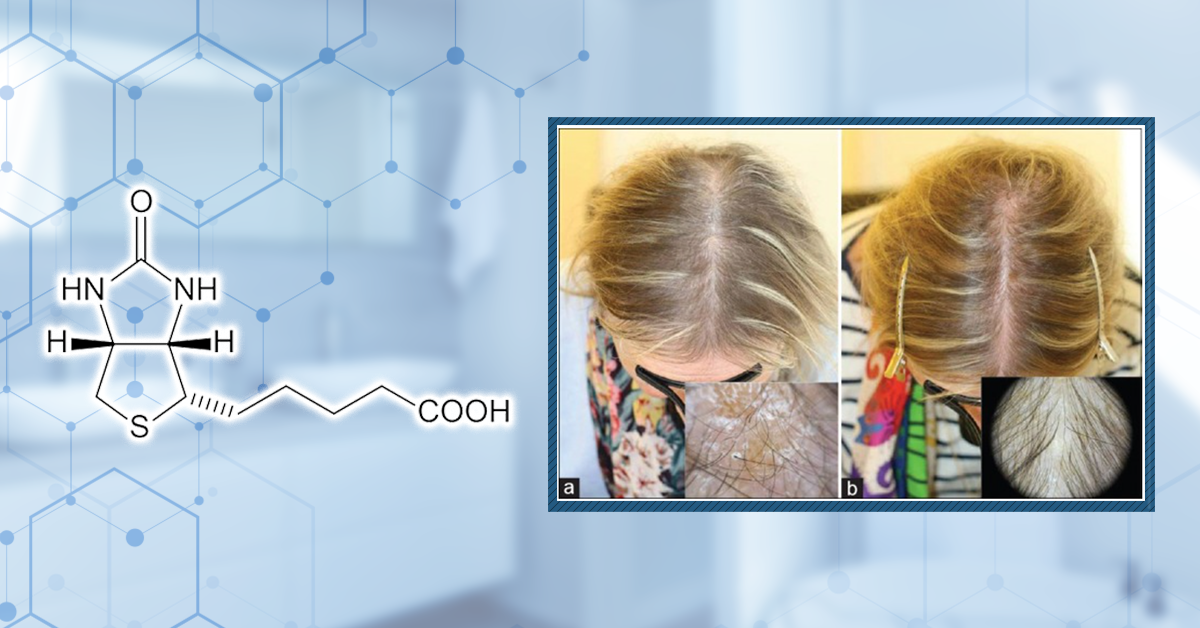
Want help with your hair regrowth journey?
Get personalized support, product recommendations, video calls, and more from our researchers, trichologists, and PhD's dedicated to getting you the best possible outcomes.
Learn MoreArticle Summary
The BTD gene, responsible for encoding the enzyme biotinidase, is crucial for biotin metabolism. Biotin, or vitamin B7, plays a significant role in hair health, and biotinidase deficiency—caused by BTD polymorphisms—can lead to hair loss conditions like alopecia. While some studies suggest that biotin supplementation may benefit individuals with biotinidase deficiency, the evidence linking BTD genetic variants to hair loss treatment efficacy is still limited. More research is necessary to determine whether BTD polymorphisms can reliably guide biotin-based hair loss treatments.
Full Article
BTD encodes the protein biotinidase, an enzyme crucial for biotin use throughout the human body. Biotin, or vitamin B7, is an essential nutrient that must be acquired from the diet. Biotin has been shown to have a range of biological functions, including a role in maintaining hair health. BTD polymorphisms can lead to a failure in biotin utilization, which can also cause hair loss conditions such as alopecia. Some companies have suggested that BTD can be used to predict hair loss treatment efficacy, citing studies investigating genetic variation in BTD. This article will explore how relevant BTD is to hair treatment effectiveness and how to interpret your genetic results to make the correct treatment choice.
What is BTD?
The BTD gene encodes the protein biotinidase, which plays a crucial role in the biotin cycle. Biotin, otherwise known as vitamin B7, cannot be synthesized by the human body, meaning it must be acquired via the diet. However, diet-acquired biotin is often bound to other proteins, forming larger compounds such as biocytin, which prevent the biotin from being used. Biotinidase functions by breaking down these larger compounds, freeing up the biotin so that it can be utilized by the body. After use, biotinidase also helps to recycle any biotin that remains in the body, ensuring that it can be used again.[1]Leon‐Del‐Rio, A. (2019). Biotin in metabolism, gene expression, and human disease. Journal of Inherited Metabolic Disease, 42(4), 647-654. Available at: https://doi.org/10.1002/jimd.12073
Biotin has a great many roles throughout the body, including the regulation of metabolism, regulation of gene expression, and supporting normal immune function. [2]Leon‐Del‐Rio, A. (2019). Biotin in metabolism, gene expression, and human disease. Journal of Inherited Metabolic Disease, 42(4), 647-654. Available at: https://doi.org/10.1002/jimd.12073 Biotin is known to have roles in protein synthesis and, specifically, keratin production, which is a key component of the hair.[3]Patel, D. P., Swink, S. M., & Castelo-Soccio, L. (2017). A review of the use of biotin for hair loss. Skin appendage disorders, 3(3), 166-169. Available at: https://doi.org/10.1159/000462981
Biotin metabolic pathways are also enriched in bacteria of the healthy scalp vs that which is producing dandruff, further suggesting a role for biotin in the maintenance of hair health.[4]Saxena, R., Mittal, P., Clavaud, C., Dhakan, D.B., Hegde, P., Veeranagaiah, M.M., Saha, S., Souverain, L., Roy, N., Breton, L. and Misra, N. (2018). Comparison of healthy and dandruff scalp … Continue reading
Yet stronger evidence is presented by observing the symptoms of patients who are biotin deficient (they lack biotin) or biotin-dependent (their body requires an abnormally high amount of biotin to function normally). Affected individuals experience a range of symptoms, including hair abnormalities and the development of conditions such as alopecia.[5]Bhattarai, D., Banday, A. Z., Sadanand, R., Arora, K., Kaur, G., Sharma, S., & Rawat, A. (2021). Hair microscopy: an easy adjunct to diagnosis of systemic diseases in children. Applied … Continue reading
Furthermore, one study was conducted with 541 women to determine how many women with self-perceived hair loss also had a biotin deficiency. It was found that 38% of these women had a biotin deficiency; however, it was also found that 11% of these women had health factors that greatly elevated their risk of developing a deficiency in the first place. One interesting finding, however, was that if a woman had hair loss, biotin deficiency, and seborrheic dermatitis, then biotin supplementation may help to improve hair loss outcomes (Figure 1).

Figure 1: Effect of 5 mg/day biotin treatment over 3 months in a patient with biotin deficiency, hair loss, and seborrheic dermatitis.[6]Trueb, R.M. (2016) Serum Biotin Levels in Women Complaining of Hair Loss. International Journal of Trichology. 8(2), 73-77. Available at: http://doi.org/10.4103/0974-7753.188040
What is the Evidence for Targeting BTD for Hair Loss?
Collectively, a significant amount of evidence suggests that biotin is important in maintaining hair health, but how does that link to BTD?
It is well-documented that biotinidase deficiency is a leading cause of biotin deficiency and dependency, leading to symptoms such as hair loss. Biotinidase deficiency is caused by mutations and polymorphisms in the BTD gene, which can partially or completely impair biotinidase activity. Clinically, BTD polymorphisms and biotinidase deficiency should be identified as early as possible, given the profound harm that it can cause to development and overall health. Biotinidase deficiency is typically detected early in life, either by newborn screening or due to the array of symptoms it causes. Still, some individuals may go into adult life undiagnosed.[7]Zempleni, J., Hassan, Y. I., & Wijeratne, S. S. (2008). Biotin and biotinidase deficiency. Expert review of endocrinology & metabolism, 3(6), 715-724. Available at: … Continue reading
Fortunately, it is possible to prevent, slow, and even reverse the symptoms associated with biotinidase deficiency. Affected individuals are given oral biotin supplements, provided in the free-from (thus not requiring biotinidase), which they must continue to take for life. The supplement is extremely effective and, among other benefits, hair growth has been shown to return in children who suffered from alopecia due to their condition.[8]Wolf, B. (2012). Biotinidase deficiency: “if you have to have an inherited metabolic disease, this is the one to have”. Genetics in Medicine, 14(6), 565-575. Available at: … Continue reading
Some companies have stated that the rs13078881 polymorphism in BTD can be used to predict the efficacy of treatment with biotin for hair loss. A study conducted on 19 children showed that the rs13078881 CG and CC genotype biotinidase deficiency.[9]Swango, K. L., Demirkol, M., Hüner, G., Pronicka, E., Sykut-Cegielska, J., Schulze, A., & Wolf, B. (1998). Partial biotinidase deficiency is usually due to the D444H mutation in the biotinidase … Continue reading
This does serve as an indication that biotin supplementation could benefit people with this polymorphism. However, as the study was conducted in children, the results may not represent how the polymorphism affects adults. Supporting this point, a separate study found that adults with the rs13078881 polymorphism exhibited biotinidase deficiency, but they did not present with any symptoms.[10]Wolf, B., Norrgard, K., Pomponio, R.J., Mock, D.M., Secor McVoy, J.R., Fleischhauer, K., Shapiro, S., Blitzer, M.G. and Hymes, J., 1997. Profound biotinidase deficiency in two asymptomatic adults. … Continue reading
The contrasting results presented by these studies suggest that the underlying mechanisms of biotinidase deficiency and how it causes the associated symptoms are yet to be truly understood. More importantly, in the context of this article, neither of the above studies mentions hair loss. Owing to these points, it is not possible to accurately determine how the rs13078881 polymorphism may influence hair loss treatments.
Consideration of the wider literature does lend itself to the conclusion that biotin supplementation may be beneficial for those with both hair loss and biotinidase deficiency. At the time of writing, there is a lack of evidence showing that biotin supplementation in healthy individuals with a hair loss disorder is beneficial.[11]Patel, D. P., Swink, S. M., & Castelo-Soccio, L. (2017). A review of the use of biotin for hair loss. Skin appendage disorders, 3(3), 166-169. Available at: https://doi.org/10.1159/000462981
What Do Your Genetic Results Mean?
Your Result BTD (rs13078881)
Variant 1 – CC genotype Variant 2 – CG genotype Variant 3 – GG genotype What it means Associated with partial biotinidase deficiency Associated with normal biotinidase levels – but are a carrier for the gene mutation Associated with normal biotinidase levels The Implication May benefit from biotin supplementation May not benefit from biotin supplementation May not benefit from biotin supplementation What Relevance Does BTD Have for Hair Loss Treatment?
We have also created a rubric that helps to determine the relevance of a specific gene to hair loss based on the quality of the evidence in the above studies.
On a scale of 1-5, how important are these genetic results? (1 is the lowest, 5 is the highest)
This score is a rating based on evidence quality.
- Does this gene have any potential relevance for hair loss? (1 point)
Yes. Studies have shown that biotinidase deficiency may lead to hair loss, and this gene polymorphism can lead to partial biotinidase deficiency. (score = 1)
- Does the totality of evidence implicate BTD as a causal agent for hair loss? (1 point)
While biotinidase deficiency may lead to hair loss, there is no evidence implicating this polymorphism in BTD in hair loss. (score = 0)
- Does the totality of evidence implicate BTD as a predictive factor for hair loss treatment responsiveness? (2 points)
No. There is no evidence to suggest that BTD polymorphisms will affect treatment responsiveness. (score = 0)
- Is this quality of evidence on (3) strong enough to influence treatment recommendations? (1 point)
Since BTD fails question #3, it cannot be awarded points for question #4 (score = 0)
Total Score = 1
Final Thoughts
Individuals who have both biotinidase deficiency and hair loss may well benefit from biotin supplementation. However, while there is significant evidence that genetic variation in BTD is associated with hair loss, which may affect the efficacy of biotin supplementation, the evidence is insufficient to make definitive treatment recommendations based solely on genotype. Larger, more robust studies are required to better understand how biotin supplementation benefits hair loss in those with biotinidase deficiency and/or BTD polymorphisms and the healthy population.
References[+]
References ↑1, ↑2 Leon‐Del‐Rio, A. (2019). Biotin in metabolism, gene expression, and human disease. Journal of Inherited Metabolic Disease, 42(4), 647-654. Available at: https://doi.org/10.1002/jimd.12073 ↑3, ↑11 Patel, D. P., Swink, S. M., & Castelo-Soccio, L. (2017). A review of the use of biotin for hair loss. Skin appendage disorders, 3(3), 166-169. Available at: https://doi.org/10.1159/000462981 ↑4 Saxena, R., Mittal, P., Clavaud, C., Dhakan, D.B., Hegde, P., Veeranagaiah, M.M., Saha, S., Souverain, L., Roy, N., Breton, L. and Misra, N. (2018). Comparison of healthy and dandruff scalp microbiomes reveals the role of commensals in scalp health. Frontiers in cellular and infection microbiology, 8, p.346. Available at: https://doi.org/10.3389/fcimb.2018.00346 ↑5 Bhattarai, D., Banday, A. Z., Sadanand, R., Arora, K., Kaur, G., Sharma, S., & Rawat, A. (2021). Hair microscopy: an easy adjunct to diagnosis of systemic diseases in children. Applied Microscopy, 51, 1-12. Available at: https://doi.org/10.1186/s42649-021-00067-6 ↑6 Trueb, R.M. (2016) Serum Biotin Levels in Women Complaining of Hair Loss. International Journal of Trichology. 8(2), 73-77. Available at: http://doi.org/10.4103/0974-7753.188040 ↑7 Zempleni, J., Hassan, Y. I., & Wijeratne, S. S. (2008). Biotin and biotinidase deficiency. Expert review of endocrinology & metabolism, 3(6), 715-724. Available at: https://doi.org/10.1586/17446651.3.6.715 ↑8 Wolf, B. (2012). Biotinidase deficiency: “if you have to have an inherited metabolic disease, this is the one to have”. Genetics in Medicine, 14(6), 565-575. Available at: https://doi.org/https://doi.org/10.1038/gim.2011.6 ↑9 Swango, K. L., Demirkol, M., Hüner, G., Pronicka, E., Sykut-Cegielska, J., Schulze, A., & Wolf, B. (1998). Partial biotinidase deficiency is usually due to the D444H mutation in the biotinidase gene. Human genetics, 102, 571-575. Available at: https://doi.org/10.1007/s004390050742 ↑10 Wolf, B., Norrgard, K., Pomponio, R.J., Mock, D.M., Secor McVoy, J.R., Fleischhauer, K., Shapiro, S., Blitzer, M.G. and Hymes, J., 1997. Profound biotinidase deficiency in two asymptomatic adults. American Journal of Medical Genetics, 73(1), pp.5-9. Available at: https://doi.org/10.1002/(SICI)1096-8628(19971128)73:1<5::AID-AJMG2>3.0.CO;2-U Want help with your hair regrowth journey?
Get personalized support, product recommendations, video calls, and more from our researchers, trichologists, and PhD's dedicated to getting you the best possible outcomes.
Learn More
Ben Fletcher, PhD
Benjamin Fletcher is a researcher & writer who holds a BSc in Biological Sciences and an MSc in Genes, Drugs & Stem Cells. Benjamin is currently pursuing a Ph.D. in Molecular Biology & Genetics, conducting research to better understand the regulatory mechanisms that drive muscle atrophy in disease, with a particular focus on the influence of microRNAs.
"... Can’t thank @Rob (PHH) and @sanderson17 enough for allowing me to understand a bit what was going on with me and why all these [things were] happening ... "
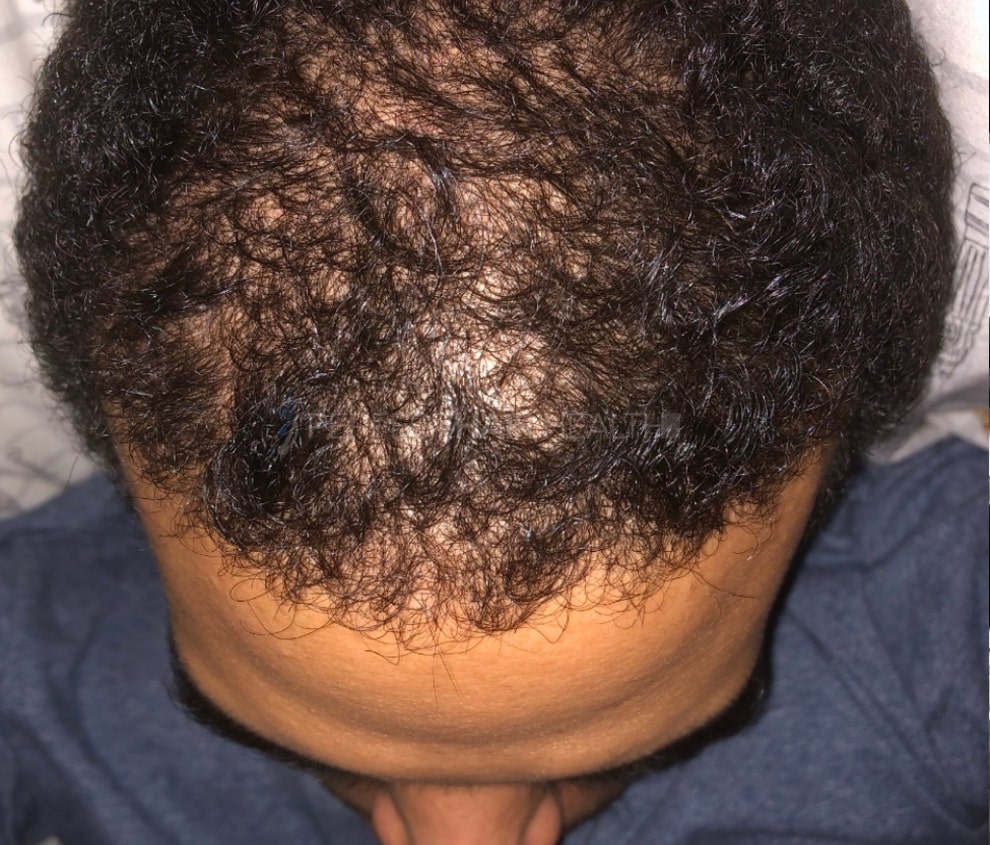
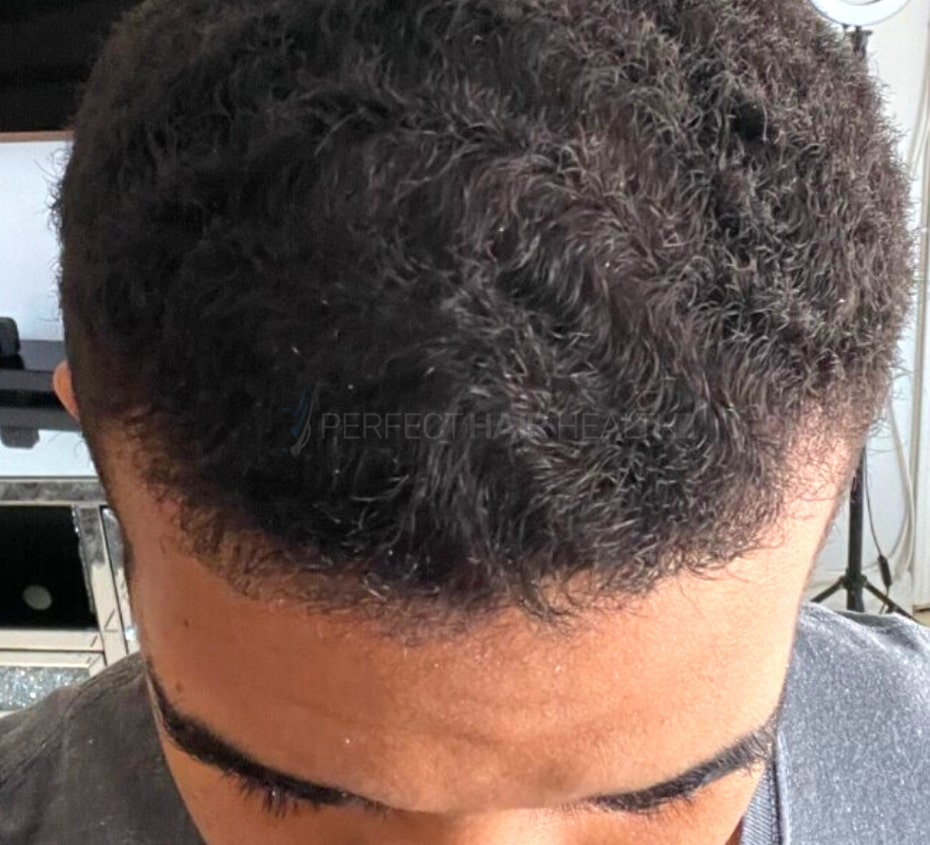 — RDB, 35, New York, U.S.A.
— RDB, 35, New York, U.S.A."... There is a lot improvement that I am seeing and my scalp feel alive nowadays... Thanks everyone. "
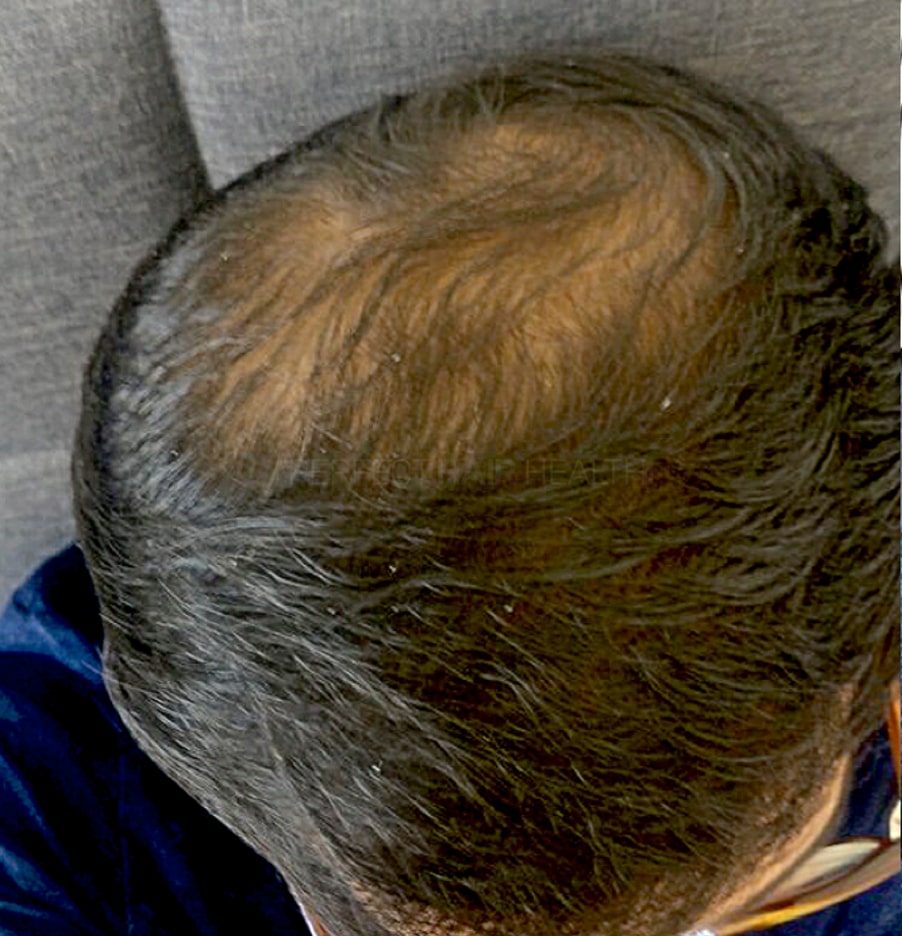
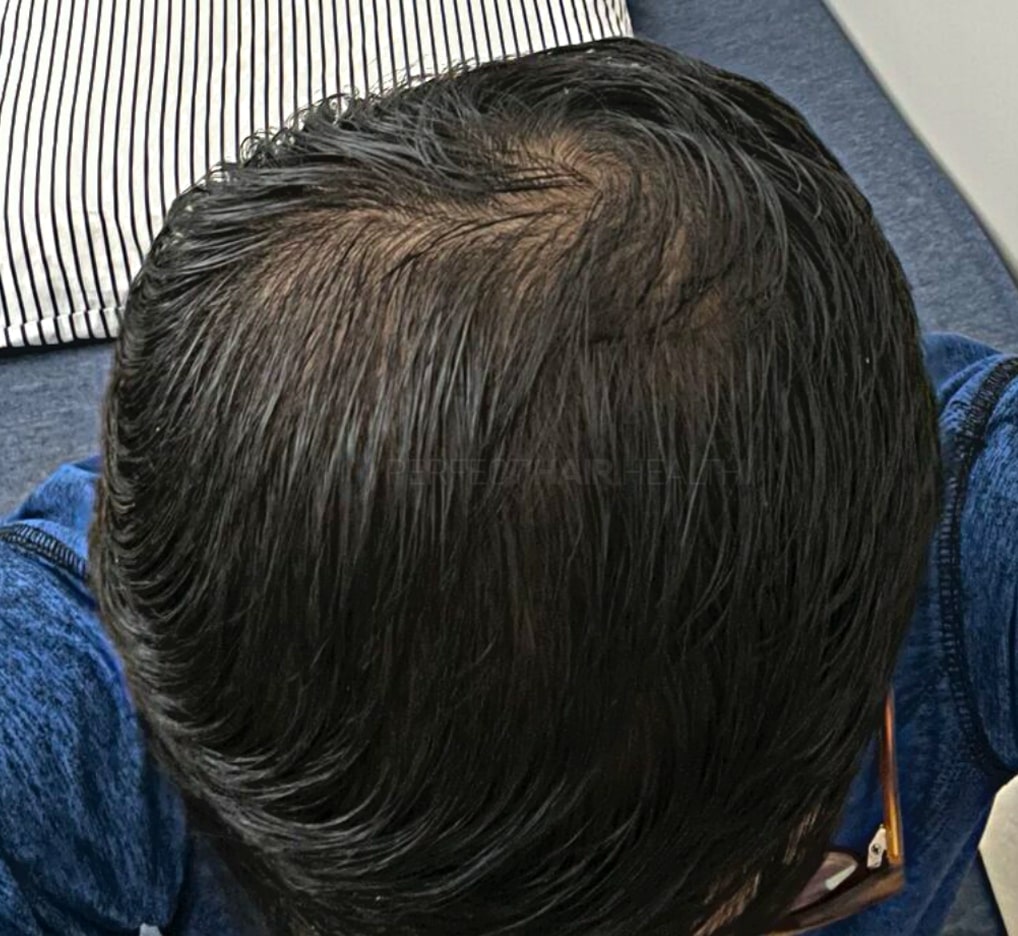 — Aayush, 20’s, Boston, MA
— Aayush, 20’s, Boston, MA"... I can say that my hair volume/thickness is about 30% more than it was when I first started."
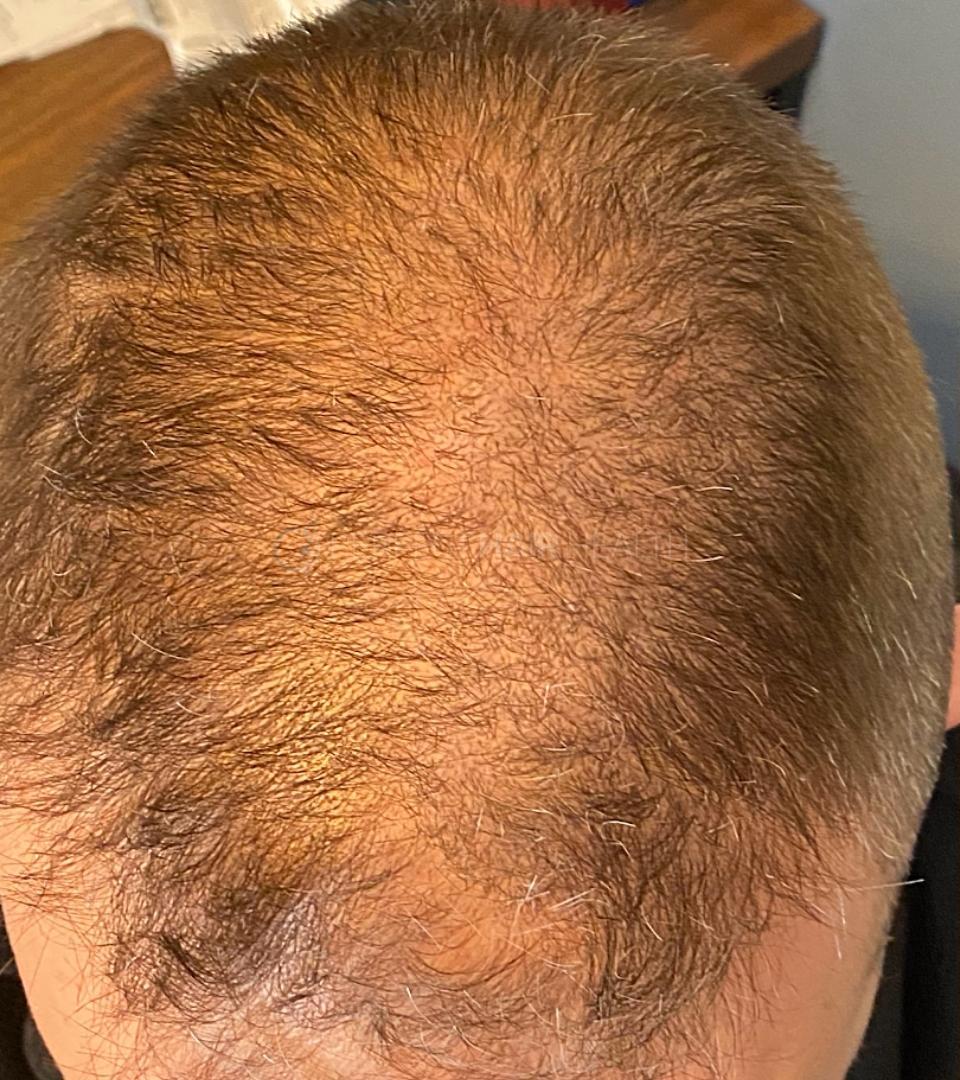
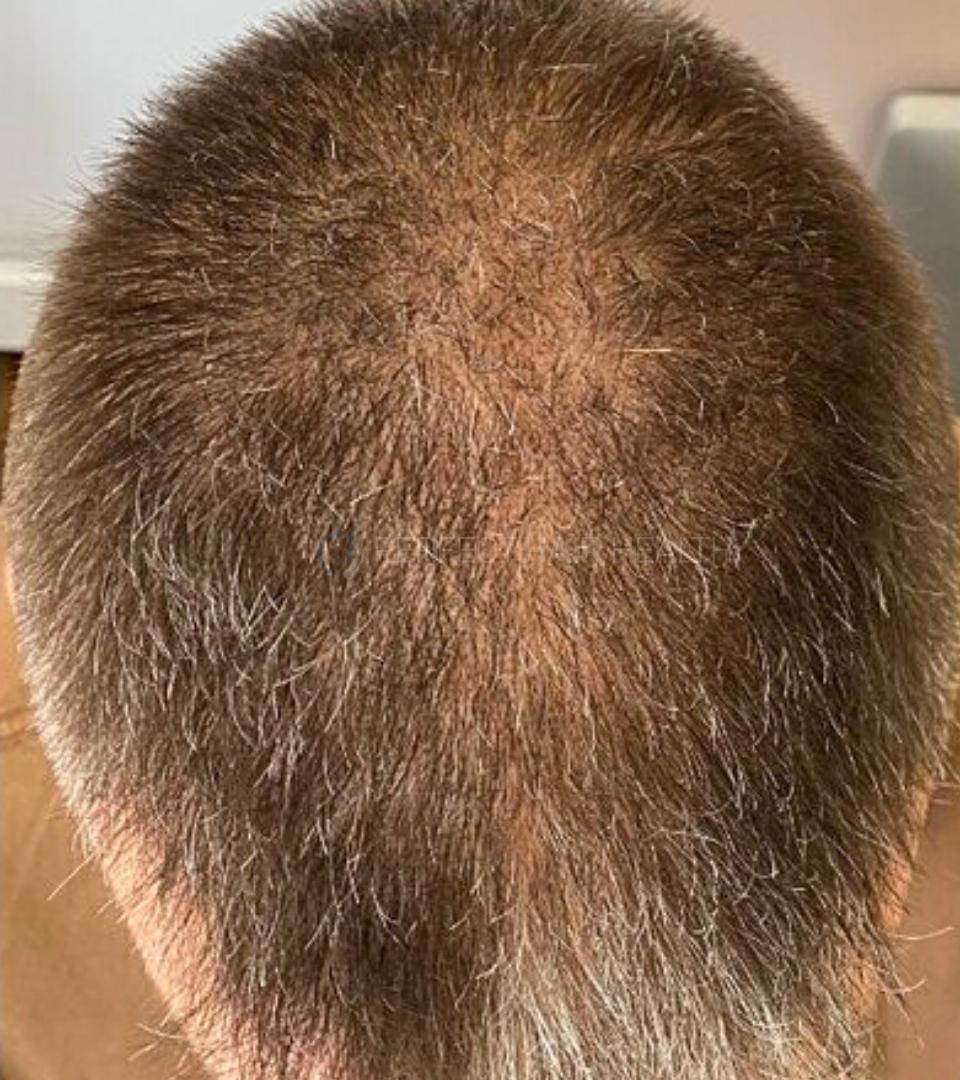 — Douglas, 50’s, Montréal, Canada
— Douglas, 50’s, Montréal, CanadaWant help with your hair regrowth journey?
Get personalized support, product recommendations, video calls, and more from our researchers, trichologists, and PhD's dedicated to getting you the best possible outcomes.
Join Now - Mission Statement